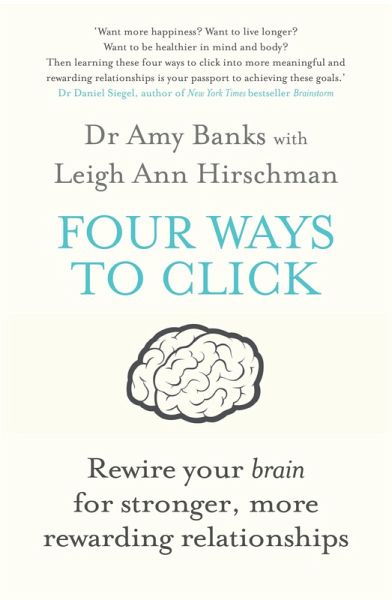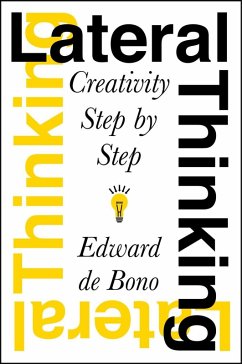
Four Ways to Click (eBook, ePUB)
Rewire Your Brain for Stronger, More Rewarding Relationships
Versandkostenfrei!
Sofort per Download lieferbar
12,99 €
inkl. MwSt.
Weitere Ausgaben:

PAYBACK Punkte
0 °P sammeln!
Do you find it difficult to 'click' with colleagues, neighbours, in-laws, or romantic partners? Loneliness has become an international epidemic, but according to Dr. Amy Banks, every one of us is quite literally hardwired for close relationships. The key to achieving more satisfying relationships is to strengthen the neural pathways in our brains that encourage closeness and connection. In Four Ways to Click, Dr. Banks reveals that there are four distinct neural pathways in the brain that correspond to the four most important ingredients for healthy and satisfying relationships: CALMNESS is a ...
Do you find it difficult to 'click' with colleagues, neighbours, in-laws, or romantic partners? Loneliness has become an international epidemic, but according to Dr. Amy Banks, every one of us is quite literally hardwired for close relationships. The key to achieving more satisfying relationships is to strengthen the neural pathways in our brains that encourage closeness and connection. In Four Ways to Click, Dr. Banks reveals that there are four distinct neural pathways in the brain that correspond to the four most important ingredients for healthy and satisfying relationships: CALMNESS is a result of a well-toned vagus nerve, which in turn helps temper the sympathetic nervous system. ACCEPTEDNESS, or accepting others and feeling accepted back, comes from a well-tuned dorsal anterior cingulate cortex. EMOTIONAL RESONANCE, our ability to reflect back to others that we 'get them', occurs when the mirror neuron system is properly functioning. ENERGY, the drive to be happy and close to the people we care about despite life's hardships, comes from a dopamine reward system that is connected to healthy relationships. When we are supported by good relationships, these neural pathways - and our brains as a whole - flourish. But when we are isolated or in bad relationships, other neural pathways associated with stress are activated, creating symptoms of anxiety, anger, withdrawal, and dissatisfaction. The great news? By tuning up these four neural pathways, we can feel better - and we can enhance your ability to connect with others. This groundbreaking book gives readers the tools they need to strengthen the parts of their brains that encourage connection and to heal the neural damage that disconnection can cause.
Dieser Download kann aus rechtlichen Gründen nur mit Rechnungsadresse in A, B, BG, CY, CZ, D, DK, EW, E, FIN, F, GR, H, IRL, I, LT, L, LR, M, NL, PL, P, R, S, SLO, SK ausgeliefert werden.













